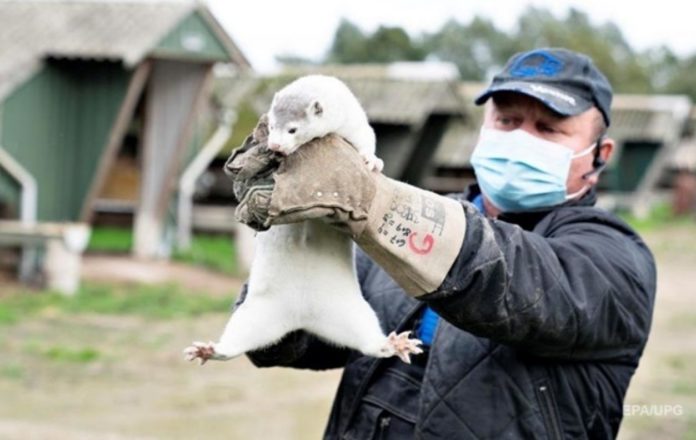In the Netherlands, 66 of the 97 Mink Farm Staff members studied by the end of June found infected.
In the Netherlands, scientists conducted a whole genome study of the COVID-19 coronavirus, which has infected animals and people on the country’s mink farms. They found that at first, the virus introduced by humans spread among the minks, after which its reverse transmission began. This is stated in a study published in the journal Science.
Experimental studies show that, in addition to humans, the SARS-CoV-2 virus can infect primates, cats, dogs, ferrets, hamsters, rabbits, bats and minks. The first outbreaks of coronavirus on mink farms in the Netherlands were recorded in April 2020. Other cases followed.
In response, the state has established a surveillance system. Scientists, with the support of WHO, studied in detail the development of the epidemic on 16 mink farms, conducted whole-genome sequencing to determine the strains of the virus and its transmission routes.
The research team concluded that the virus was originally introduced to farms by humans, and actively evolved among minks during the initial period of infection – several weeks before it was discovered. Then, despite the increased biosecurity, the reverse transmission began – from animals to humans.
Tough measures were taken and the infected farms were immediately eliminated, but the infection spread – there was the transmission, as the authors write, “by unknown means” between farms in three large clusters. Perhaps, scientists say, this is due to the transfer of some workers from one farm to another.
By the end of June, 66 of the 97 employees of the mink farms where the research was conducted were infected.
Analysis of the genomes of the virus revealed a wide variety of sequences in animals, which are based on the D614G mutation introduced by humans. According to the authors, this indicates that the virus went through many generations before an increase in animal mortality was discovered.
At the same time, sequencing revealed in humans strains of the virus with an animal sequence signature, which indicates the reverse transmission of the virus from minks to humans.
The author further explains that it is
“important to conduct more research on minks and other mustelids to see if these species are at risk of becoming a reservoir for SARS-CoV-2. t is imperative that fur production and trading sector should not become a reservoir for future spillover of SARS-CoV-2 to humans”
Scientists have not found cases of infection in any other animals living on farms, except for minks.
Last week, Danish authorities said they had found mutated coronavirus in minks, which can be transmitted to humans. Its new form causes weak production of antibodies, which may undermine efforts to develop a vaccine. It was decided to destroy all minks in the country – 15-17 million animals.
A mutated coronavirus in minks from the beginning of summer to mid-October was found in 214 people in northern Denmark. Only 14 people outside the northern region contracted this type of coronavirus.
